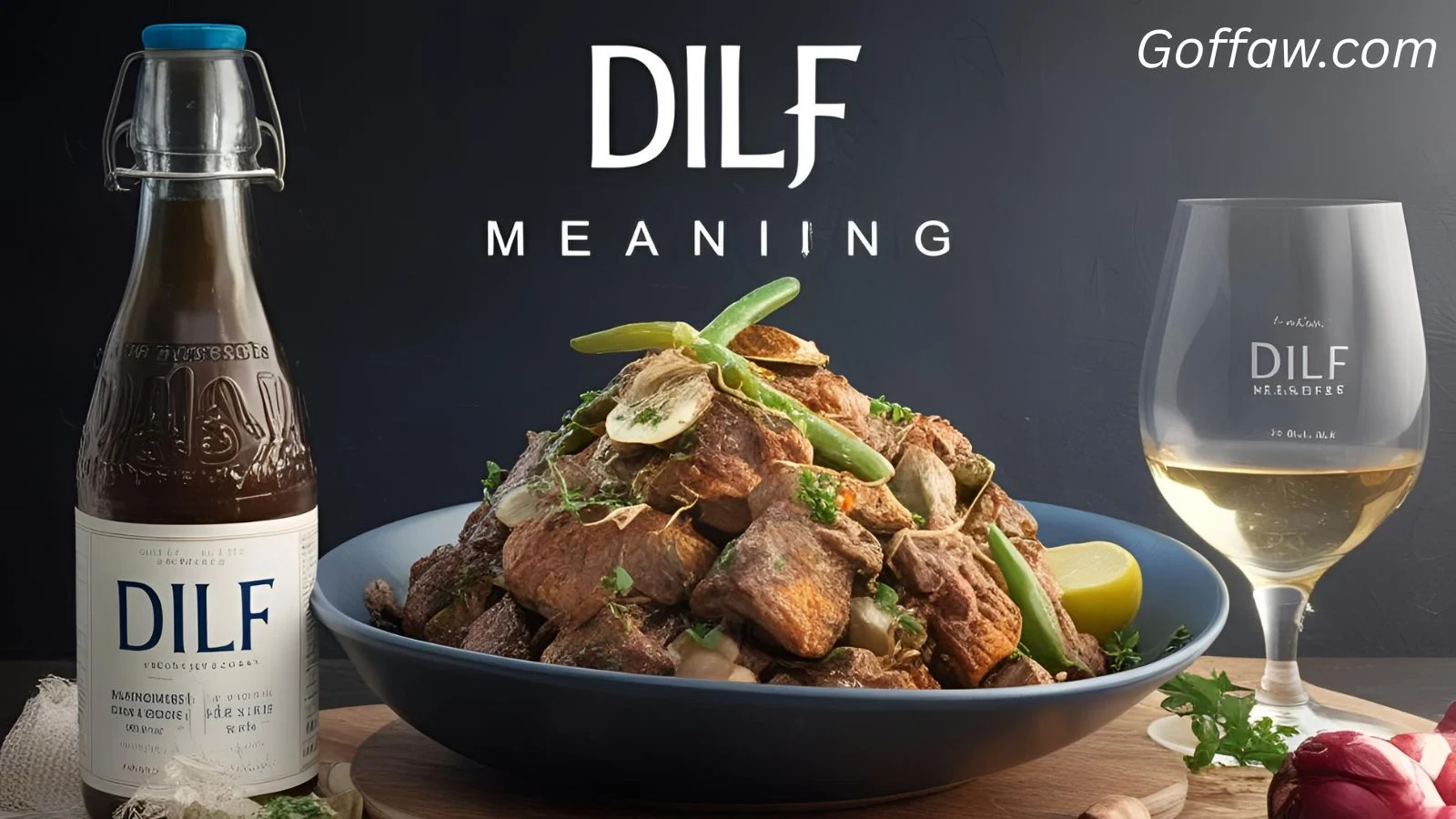In today’s digital age, language evolves faster than ever before. New slang, abbreviations, and acronyms appear on social media, in pop culture, and in daily conversations—often leaving some people wondering, “What does that even mean?” One such term that has gained popularity in recent years is DILF.
While some may find it humorous, others might find it confusing or even inappropriate depending on the setting. That’s why in this comprehensive guide, we’ll explore:
- What “DILF” means
- Where it came from
- How it’s used in texts and everyday language
- Polite, professional, and casual alternatives you can use
- 11 context-aware example phrases that suit a range of conversations
Let’s break it all down in a user-friendly way without relying on jargon—and always keeping things respectful and Google-AdSense-safe.
What Does “DILF” Mean?
DILF is an acronym that stands for “Dad I’d Like to Friend”—although the original term actually uses a more suggestive word in place of “Friend.” It’s a slang term used mostly in informal, casual, or humorous contexts to describe an attractive father, typically middle-aged, whom someone finds physically appealing.
It’s often considered the male counterpart to “MILF,” which is used for women. Both terms originated in pop culture and gained traction through films, TV shows, and memes.
However, due to the slightly adult connotation of the original phrase, it’s not always appropriate for all audiences or professional settings. This is why many people seek friendlier, more suitable alternatives that still communicate admiration or compliments—without crossing any boundaries.
What Does DILF Mean in Text or Online Conversation?
When used in texts or online chats, “DILF” is typically a compliment (albeit cheeky). You might see it used in a comment on a picture of someone’s dad, in a tweet about a celebrity father, or even in memes.
Examples:
- “Why is he such a DILF though?”
- “I swear, that dad at the soccer game is a total DILF.”
- “Ryan Reynolds is the ultimate DILF.”
While it might make someone laugh, it’s important to remember: this acronym isn’t always received well, especially in formal or professional environments.
Why You Should Be Cautious When Using “DILF”
Here are a few reasons why you might want to avoid using “DILF”:
- It can come across as objectifying. Even if meant as a compliment, it focuses purely on physical appearance.
- It’s informal and slightly suggestive. Using it in workplace communication or around children is definitely a no-go.
- It may offend the person it’s directed toward. Not everyone appreciates being referred to in such terms, no matter how attractive they may be.
That’s where alternatives come in handy.
11 Polite, Professional, and Casual Alternatives to “DILF”
Now, let’s explore the best ways to express a similar sentiment—without making it awkward, offensive, or inappropriate. Each alternative comes with examples and an explanation of how and when to use it.
1. Attractive Dad
Use when: You want to be straightforward and casual.
Example:
“That guy at the BBQ is such an attractive dad.”
This phrase is clean and universally understandable. It removes the suggestive undertone and still gets the message across.
2. Handsome Father
Use when: You’re in a more formal or respectful setting.
Example:
“Her dad is such a handsome father. Very put together.”
This is a more traditional and respectful way to express admiration for someone’s appearance.
3. Distinguished Gentleman
Use when: You’re referring to someone older who carries themselves well.
Example:
“He’s a distinguished gentleman—gray hair and all.”
This phrase leans into charm and maturity rather than youth or physicality.
4. Silver Fox
Use when: You’re aiming for a fun, pop-culture-informed compliment.
Example:
“Ever since he turned 50, he’s become a total silver fox.”
This term refers to older men (often with gray hair) who are attractive and charismatic.
5. Well-Groomed Dad
Use when: You want to compliment style and appearance together.
Example:
“He’s a well-groomed dad—always dressed sharp.”
This focuses more on presentation than attractiveness alone, which makes it sound more respectful.
6. Charming Family Man
Use when: You want to compliment personality and looks.
Example:
“He’s a charming family man—funny, warm, and good-looking.”
This term balances physical appeal with likability, making it more wholesome.
7. Stylish Father
Use when: You’re complimenting someone’s fashion sense.
Example:
“That stylish father could be a model.”
This one is especially good in casual conversations where fashion is a key part of the admiration.
8. Attractive Gentleman
Use when: You’re speaking professionally or want to avoid sounding overly personal.
Example:
“The keynote speaker was an attractive gentleman with a commanding presence.”
Clean and polished, this phrase works in everything from LinkedIn posts to polite conversation.
9. Elegant Dad
Use when: You want to highlight grace and charm.
Example:
“He’s not just a good dad—he’s an elegant dad.”
Ideal for situations where you want to sound complimentary without being too personal.
10. Classy Father Figure
Use when: You want to emphasize maturity and sophistication.
Example:
“He’s such a classy father figure—always knows the right thing to say.”
This phrase works in scenarios where respect is key.
11. Admirable Dad
Use when: You want to focus more on character and charisma.
Example:
“He’s such an admirable dad—well-spoken, kind, and really good-looking too.”
This wraps personality and appearance into a neat, respectful phrase.
How to Choose the Best Alternative to “DILF”
When choosing the right term, consider the setting, tone, and audience. Here’s a quick guide:
| Situation | Best Alternative |
|---|---|
| Professional Environment | Handsome Father, Attractive Gentleman |
| Social Media Post | Stylish Father, Silver Fox |
| Compliment Among Friends | Attractive Dad, Charming Family Man |
| Writing a Blog/Article | Distinguished Gentleman, Classy Father Figure |
| Talking to or about the Person | Well-Groomed Dad, Admirable Dad |
Tip: When in doubt, lean on language that’s respectful, descriptive, and clean.
Why Language Matters
Words have power. While slang can be fun and expressive, it’s important to use language that’s inclusive, thoughtful, and adaptable to different social settings.
Using respectful alternatives doesn’t mean you’re being too careful—it means you’re choosing your words wisely.
Remember: It’s not just what you say, but how you say it.
Conclusion
The term “DILF” may be common in pop culture, but it’s not always suitable for every conversation. Whether you’re commenting on someone’s appearance, writing content for the web, or just trying to express admiration respectfully, there are plenty of alternative phrases that:
- Sound good in any setting
- Avoid suggestiveness
- Keep things polite and professional
- Still express appreciation for someone’s appearance and charm
Language is evolving, and so should we.
So next time you find yourself about to type “DILF,” pause—and consider one of the 11 thoughtful, classy alternatives we’ve shared here.
You’ll not only sound better—you’ll be better understood.




